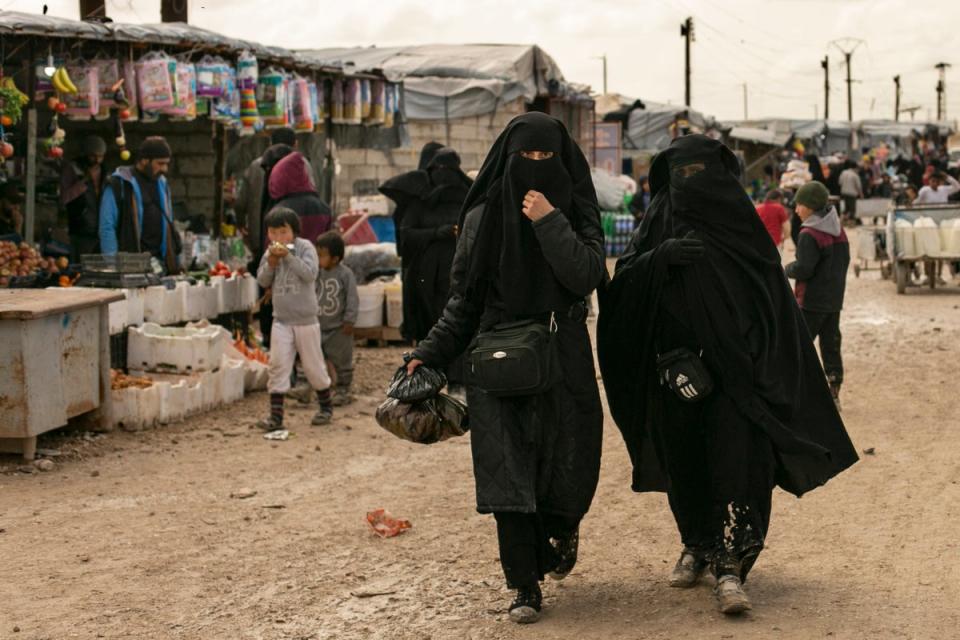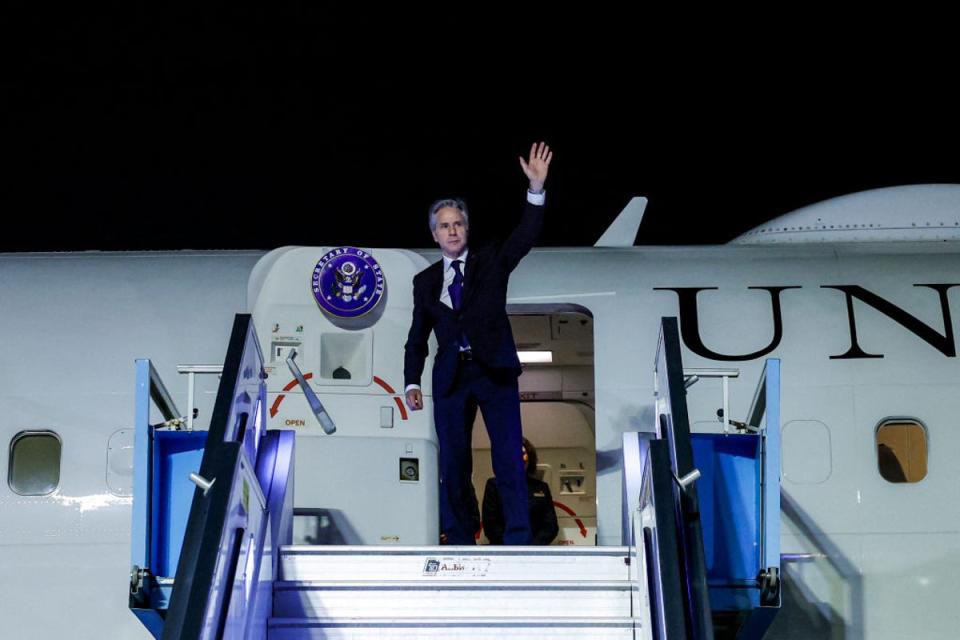US brings home 11 Americans held in Syrian refugee camp for ISIS families
The Biden administration says that it had repatriated a large family unit of Americans who had been living in the squalid refugee camps for families of ISIS fighters in northern Syria.
Eleven people in total, none of whom were former Islamic State (ISIS) fighters, were brought to the US as part of the effort, Secretary of State Antony Blinken said in a statement on Tuesday.
It’s the largest single group to be repatriated to America from the refugee camps, where residents including many family members of ISIS militants live in horrid conditions as their futures remain in legal limbo. Many governments have resisted calls from the US to bring home citizens of their respective nations who have turned up in the camps after travelling to the Middle East.

“Approximately 30,000 individuals from more than 60 countries outside Syria remain in the al-Hol and Roj displaced persons camps, the majority of whom are children. As governments undertake repatriation of their nationals, we urge thoughtfulness and flexibility to ensure that to the maximum extent possible family units remain intact,” said Mr Blinken.
“The only durable solution to the humanitarian and security crisis in the displaced persons camps and detention facilities in northeast Syria is for countries to repatriate, rehabilitate, reintegrate, and where appropriate, ensure accountability for wrongdoing,” he continued.
“The United States remains committed to helping those nations which seek to repatriate their nationals from northeast Syria, and to finding solutions, including resettlement, for those who are unable to return to their communities or countries of origin.”
The group includes one nine-year-old child, described as the brother of a US-born citizen, who does not himself have US citizenship. There’s no indication yet that any of the repatriated Americans are bound for prosecution by the federal government.
A spokesman for the State Department, Matthew Miller, reiterated those calls on Tuesday as he spoke about the announcement at his daily press briefing in Washington.
“We urge all countries of origin to repatriate, rehabilitate, reintegrate and where appropriate, prosecute their nationals upon their return from Syria,” Miller said.

He was also able to confirm that “around 25” American citizens remain in the northern Syria camps including the infamous Al Hol camp, which The Independent visited in 2019.
Mr Miller took a second question in the briefing related to Austin Tice, an American freelance journalist and US military veteran who went missing in Syria in 2012. His answer reaffirmed the US government’s belief that the Syrian government is either directly or indirectly responsible for Mr Tice’s continued captivity, and he called for his release.
“We call on the Syrian regime to ensure that Austin Tice and every other US national held in Syria are able to return home,” Miller said.
The move by the US government to repatriate its citizens was cheered by Austin Doctor, an expert with the National Counterterrorism Innovation, Technology, and Education Center. The organisation authored a report in 2023 which supported an organised process for repatriating the spouses and children of Islamic State fighters. The terrorist group’s physical territory collapsed after a sustained international effort to dislodge its fighters from Iraq and Syria, however, the ISIS ideology continues to promulgate violence around the world.
“Good news, & the result of dedicated hard work,” Doctor wrote on Twitter.
Roughly 30,000 people, the majority of whom are children, remain scattered in refugee camps for ISIS family members in northern Syria, according to the US State Department.
In 2019, The Independent found that authorities still saw a dangerous undercurrent of ISIS’s radical Islamist ideology within the Al Hol camp. Detainees spoke of entire “groups” of refugees disappearing from the camp, with their escapes credited to Isis-contracted smugglers.
“We can see it happening all the time. Everybody knows,” said Umm Abdullah, a 37-year-old detainee from Khartoum, Sudan. “You’ll see one group disappear, and figure out that they left. Then another group will go. Good luck to them.”


